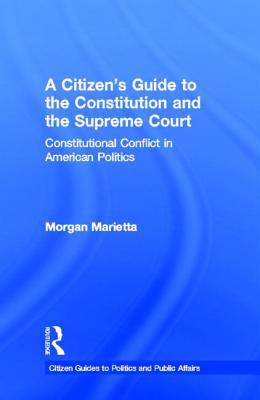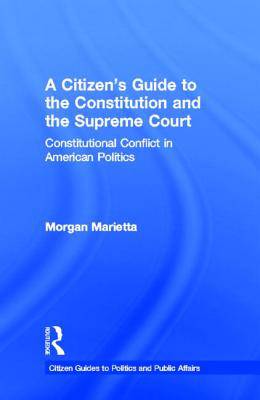
- Retrait gratuit dans votre magasin Club
- 7.000.000 titres dans notre catalogue
- Payer en toute sécurité
- Toujours un magasin près de chez vous
- Retrait gratuit dans votre magasin Club
- 7.000.0000 titres dans notre catalogue
- Payer en toute sécurité
- Toujours un magasin près de chez vous
A Citizen's Guide to the Constitution and the Supreme Court
Constitutional Conflict in American Politics
Morgan MariettaDescription
The U.S. Constitution is a blueprint for a free society as well as a source of enduring conflict over how that society must be governed. The competing ways of reading our founding document shape the decisions of the Supreme Court, which acts as the final voice on constitutional questions. This breezy, concise guide explains the central conflicts that frame our constitutional controversies, written in clear non-academic language to serve as a resource for engaged citizens, both inside and outside of an academic setting.
After covering the main points of conflict in constitutional law, Marietta gives readers an overview of the perspectives from the leading schools of constititional interpretation--textualism, common law constitutionalism, originalism, and living constitutionalism. He then walks through the points of conflict and competing schools of thought in the context of several landmark cases and ends with advice to readers on how to interpret constitutional issues ourselves.
Spécifications
Parties prenantes
- Auteur(s) :
- Editeur:
Contenu
- Nombre de pages :
- 216
- Langue:
- Anglais
- Collection :
Caractéristiques
- EAN:
- 9780415843799
- Date de parution :
- 31-07-13
- Format:
- Livre relié
- Format numérique:
- Genaaid
- Dimensions :
- 183 mm x 257 mm
- Poids :
- 639 g

Les avis
Nous publions uniquement les avis qui respectent les conditions requises. Consultez nos conditions pour les avis.






